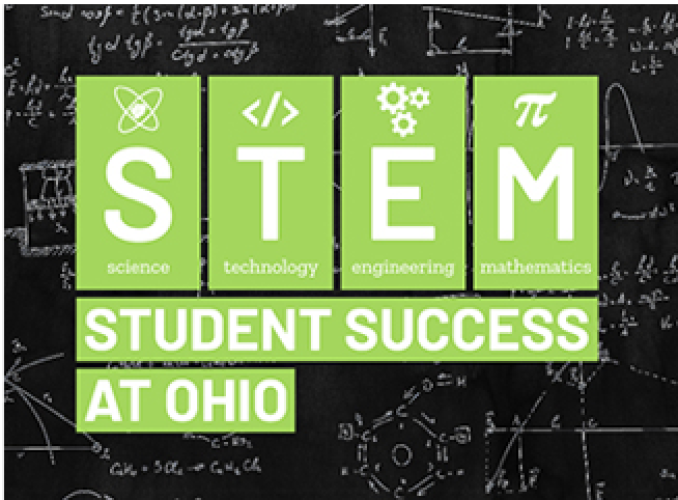

Join experts from Ohio University Libraries and Elsevier, a database and publishing company, for an undergraduate crash course designed to prepare STEM students for life as a researcher or in a STEM career.
The STEM Student Success at OHIO workshop will have two iterations taking place on March 16from 4:30 p.m. to 5:30 p.m. and March 17from 11 a.m. to noon. The event is free, but registration is suggested.
Hanna Schmillen , the interim head of Subject Liaison Services and subject librarian for health sciences, said that students will learn skills such as discerning the difference between real and fake information, evaluating the quality of scientific sources and distilling peer-reviewed research.
“Some things we’ll address will be: How do you find reliable sources and what does that actually mean?” she said. “The misinformation atmosphere right now and the COVID-19 conspiracy theories are really big, so we’re taking apart that kind of information and talking about awareness of bias.”
Schmillen said these skills are necessary, not only for students seeking their degrees, but for future professionals and “just people in the world.” Scientific literature often comes in a different format than other types of information, so this workshop aims to introduce new or incoming STEM students to the world of scholarly research.
“As a researcher, you have access to content that the general public might not have … so highlighting how information is made available to students through their affiliation with the University will be part of the work that the webinar covers,” said Dr. Kelly Broughton , assistant dean for research and education services at the Libraries.
Broughton also helped organize the workshops and said that the Libraries and Elsevier worked with faculty and advisors in the sciences to address the practical research skills and information that undergraduate students should develop to be successful researchers in the future.
“(As) students work through their undergraduate careers, their experiences set the stage for some of the work that they may be doing when they’re participating in original research with their faculty, or doing a capstone project in their major and preparing to go to graduate school or looking for a job,” she said.
The workshop is aimed at STEM students, which includes all of the “bench sciences,” along with pre-med disciplines and engineering. Students in astronomy, chemistry, plant biology, math, engineering, nursing and health sciences are encouraged to attend, as well as students in related disciplines.
“Even if you’re a journalism student who has to write articles about the COVID-19 vaccine, and you’re going to have to interact with (this) kind of information, this workshop could be helpful,” Schmillen said.
All of the resources addressed will be freely available for the OHIO community through the University Libraries. Schmillen said that the resources are open to everyone affiliated with Ohio University or are open access resources that are available to everyone. Learning to use databases from the Libraries is important because it expands the breadth and depth of information that students can access through the University.
“I often describe the Libraries research databases as a car dealership,” she explained. “If I want to buy a car, I’m not going to buy a car at Walmart … I’m going to go to a Toyota or a Subaru dealership. That’s what research databases are like. (Students) go to PubMed or Scopus because that’s the kind of information they’re looking for, and while Google can lead you to some great resources, they’re vague or not quite right.”
Register here for the March 16 or March 17 iterations of the STEM Student Success workshops with the Libraries and Elsevier. To request accessibility accommodations for this workshop, contact Jen Harvey .

